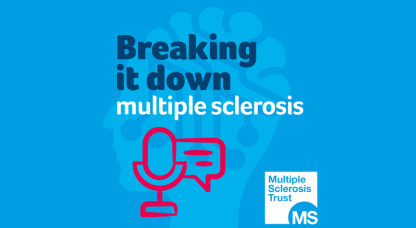Scarlet talks about how she learnt to manage her MS and mental health alongside the stresses of completing a university degree.
I had always wanted to go to university to get a degree. It was one of my ‘before I am 30’ things to do but after my MS diagnosis in 2013, aged 23, I didn't think it would be possible. Most of my ongoing MS symptoms are cognitive so I struggle with anxiety, sensory overload and processing information. I also struggle controlling my emotions and coping with stress.
I’m unsure of what eventually changed my mind and made me go and find out more about higher education courses. I always doubt myself but that day I just thought “I've come this far with MS, so let's keep going”. When I decided to get back into education after so long, the initial plan was to complete my foundation degree in Child and Family Studies, as I had always worked with children and at the time my MS felt stable and I was confident.
In 2016 I signed up for a two year foundation degree with a final year top up option to gain a BA (Hons) in Child and Adolescent Studies. After a year and a half of the course, in January 2018, I had what was at the time, my biggest relapse. I was experiencing numbness down one side of my face and body, extreme fatigue and had completely lost hand dexterity and coordination. I was admitted to hospital, given a high dose infusion of Methylprednisolone and spoke with my consultant about a drug change to Lemtrada, which I started in March 2018.
Being positive is very difficult when you feel nothing ever goes your way. I've not been dealt the easiest hand but I just keep going.
During this time I had assignments to be completed and with the loss of my coordination, using my laptop was extremely difficult. I became very stressed, suffered from severe anxiety and tried to keep it all inside. I started panicking about not even making my foundation degree let alone the third year. The stress made my MS worse and it was very difficult to stay positive. Staff were very supportive and I managed to get an extension for hand in dates on the assignments that were due and was catching up with work online at home. When I was able to be up and about, it helped that the course was mainly on the ground floor and in the one room.
Six months after the relapse I graduated and also decided to apply for the third, final year. I looked more into Disabled Student Allowance and student support at the university and made sure I would make use of the support I was going to need, instead of keeping it all inside again. I was given a note taker recorder, had regular meetings with a lovely woman from the student support team and had counselling sessions on learning how to manage my stress and emotions from the previous year.
I relapsed again in December 2018 and my anxiety was high again. Disabled student allowance allowed me to have extensions on all of my final assignments, my dissertation and extra time in the exam. During this time I kept in contact with student support through emails and was reassured that I could still make the final deadline.
In June 2019 I had my second round of Lemtrada, just after completing my final pieces of work, meaning I could still make the July graduation. I received second class upper division.
Being positive is very difficult when you feel nothing ever goes your way. I've not been dealt the easiest hand but I just keep going. University can offer support for those like myself. It takes confidence to ask for help but it is there so make sure you use it as people do want to help you succeed.



